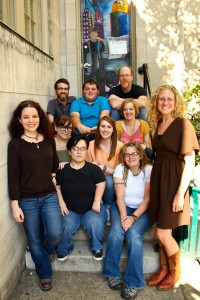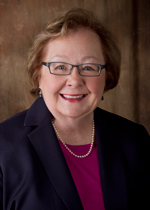
by Brianne Welch | Oct 29, 2012 | Uncategorized
The Contributor, the homeless newspaper here in Nashville, needs more help than simply buying the paper. It is a genuine non-profit organization in need of donations. Founder and Executive Director for The Contributor Tasha Lemley started out as a photojournalist when she moved to Nashville, and she quickly saw the homeless community as a place she could serve. “I started making friends on the street and falling in love with these people,” she said. “I thought, what can I do to fully be a part of this community?” Lemley said she knew of street newspapers in other cities and thought that using her journalism skills would be a great way to bring people together. “I never thought it would get people off the streets,” she said The Contributor started out having two goals, according to Lemley: “create a quality publication that tells about issues related to homelessness and poverty,” and secondly, “create a source of income for the homeless community.” Lemley said those were the main goals The Contributor was founded on, but a third purpose of the paper showed itself as the most meaningful and inspirational goal of all. “The most inspiring part is the stories that come out about getting people to dialogue with one another,” Lemley said. “We get to see lives changed on both sides of the economic divide.” Lemley mentioned a story about a dentist talking to a newspaper vendor and finding out that he can help the vendor by giving him free dental work. But not all the stories have monetary value, she said. “My favorite story involves an older woman who has...
by Brianne Welch | Oct 24, 2012 | News Slider
Clean drinking water is so often taken for granted, but there are areas all over the world that struggle to get a safe drink of water every day. Safe and clean drinking water has been always been an issue in developing countries around the globe. There are people in countries worldwide who get water-born diseases because they drink, bathe, wash clothes and perform other daily tasks in the same water source. According to Dr. Joe Morgan, the university’s department chair of civil and environmental engineering, engineers are some of the most important people in helping deal with the clean water crisis in the world. ”Typically engineers that are helping people have access to clean water would work with local or national populations to try and help folks look at available sources,” he said. Safety for the communities is the key issue for engineers who are helping develop clean water systems. “We have to analyze and know what is the best plan for meeting the needs of the community,” Morgan said. “We decide which technology may or may not be required to make sure the water is reasonably safe.” Morgan said for communities who only have one water source for the entire area, the solution may be very simple. “A lot of times, all that is really required is just to put in a well.” Morgan said, explaining that putting in a working well can greatly enhance the water quality of a community that uses the same water source for everything they do. Not only do engineers help with the building process of wells and treatment plants. Morgan said they are also very...

by Brianne Welch | Oct 15, 2012 | Uncategorized
With a passion for serving older adults, Beverly Patnaik is using her heart and her education to equip a younger generation to better care for the generation that came before. Five years ago Patnaik moved to Nashville, and now she is the head of one of Lipscomb’s newest academic endeavors, the School of TransformAging. The School of TransformAging is dedicated to educating and training people to provide holistic care in the aging services industry, promote research in the field and “transform public policy and public opinion on aging.” “We want a very rigorous academic program, and we have that,” Patnaik said, adding that she’s very proud of the department. “We are one of the few schools in the nation who does have that.” The School of TransformAging offers a master’s of professional studies in aging services leadership as well as a graduate certificate in aging services leadership. The two are offered at different times during the year. There is more to this school than just the academic aspect Patnaik said. “We also commit to training professionals and family caregivers at all levels,” she said. Patnaik, originally from North Carolina, attended graduate school at the University of North Texas where she obtained her master’s degree in gerontology from the Center for Studies in Aging. Before coming to Nashville, she worked at Duke University Medical Center. Patnaik relocated to Nashville in order to be closer to her grandchildren. She has a 4-year-old granddaughter, 6-year-old grandson and another one due around Thanksgiving. Patnaik did not come to Nashville looking for a job at Lipscomb, but she found one anyway. “Essentially I did...
by Brianne Welch | Oct 4, 2012 | Sports
Greg Brown, former student coach under Don Meyer, came back to Lipscomb this year, only this time as a head coach. Brown was a graduate assistant and then assistant coach under Pat Summitt at the University of Tennessee and was then an assistant coach at the University of Central Florida before returning to his alma mater, Lipscomb. “The environment and the culture are the two biggest draws,” Brown said, talking about his return to Lipscomb. Brown said he strongly believes that Lipscomb and Nashville are a wonderful community that he is thankful to return to. He also mentioned how thankful he is to be able to send his two sons to a Christian school. Brown coached under Don Meyer, a legend not only to Lipscomb but to the basketball world, as well. Brown talked about the influence Meyer had on other legendary coaches. “As I went to Tennessee, I got to see his influence with Coach [Pat] Summitt and with Coach [Joi] Williams at UCF,” Brown said. Brown said he picked up many aspects of his coaching style from Coach Meyer. “Intensity and the team attitude, and the Greek word arete–that pursuit of excellence–is what I learned then [under Coach Meyer], and it starts to become more and more evident every day,” he said. One major thing Brown took away from coaching under Coach Summitt is “what it was like to compete at your highest level, individually, and then to compete at the highest level as in National Championships.” Brown said he is thankful for those experiences and said “that is what we are building Lipscomb towards.” Building the...
by Brianne Welch | Sep 28, 2012 | Sports
Jenny Borck, a sophomore from San Diego, has been playing tennis twelve years, and now at the collegiate level, she’s still loving every minute. At the age of 6, Borck’s parents put her in tennis, and she has been playing ever since. “My parents play tennis,” Borck said. “Instead of watching them play all the time, I would just go on another court with one of their friends or by myself, and I just ended up really liking it.” As Borck grew up and became interested in more competitive tennis, her career became more focused. Borck played on her high school tennis team all four years and said her team was special not only because they were talented, but also for another reason. “My sophomore year, my mom became the tennis coach of my high school,” Borck said. Having her mom as her coach was something that Borck said she truly enjoyed about high school tennis. “It was really cool that my mom was our coach.” Along with her high school career, Borck played in different tournaments on the side against other ranked opponents. “In order to get a national ranking, you have to compete in national tournaments,” she explained. “I played in a lot of national tournaments in Southern California, but Southern California is one of the hardest divisions in the United States, so that made it hard.” During high school, Borck began the recruiting process, hoping to be noticed by college coaches. This is a process every athlete goes through if they desire to play at the collegiate level, and Borck made the decision to go to...



